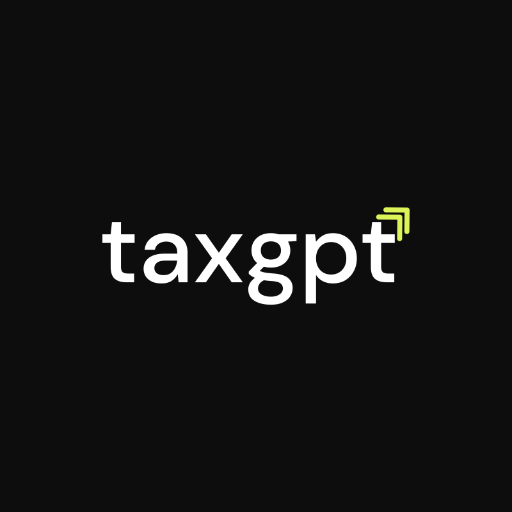FOIA GPT-FOIA request writing assistance
AI-powered tool for FOIA requests
Help me write a FOIA request
I've received a response to my FOIA
Should I appeal?
How can this help fight corruption?
Related Tools
Load More
LegalGPT
Specialized in legal matters, this GPT could assist lawyers and legal professionals with case research, legal documentation, and even help in predicting case outcomes based on historical data.

All Things Air Force GPT
This GPT will help you write EPB's, Award Packages, along with AFI Guidance.

決算分析GPT
日本企業の決算報告を分析して、分かりやすく詳細に伝えます。

TaxGPT
Your AI tax assistant - Powered by TaxGPT.com

FX-GPT
Analysis, Learning and Trading

RFCGPT
RFC expert service
20.0 / 5 (200 votes)
Introduction to FOIA GPT
FOIA GPT is a specialized tool designed to assist individuals, organizations, and legal professionals with navigating the U.S. Freedom of Information Act (FOIA) process. Its core function is to help users draft effective FOIA requests, analyze responses from government agencies, and develop strategies for appeals if necessary. By leveraging artificial intelligence, FOIA GPT provides expert guidance on request formatting, compliance with legal requirements, and strategies to obtain the desired information. The system is designed with a focus on transparency, accountability, and empowerment of users who seek information from public agencies. In practice, FOIA GPT can streamline the process of filing requests by automating technical aspects, ensuring that requests comply with FOIA guidelines, and identifying the correct agencies or departments. For example, if a journalist is seeking data from the Department of Defense about military expenditures, FOIA GPT can help by drafting a tailored request, suggesting relevant departments, and analyzing potential issues with the scope or wording of the request.

Main Functions of FOIA GPT
Drafting FOIA Requests
Example
A public advocacy group needs to file a FOIA request for information about pollution violations by a chemical company. FOIA GPT can help draft the request to ensure it is clear, legally compliant, and directed to the appropriate agency, such as the Environmental Protection Agency (EPA).
Scenario
By utilizing FOIA GPT, the group can avoid common pitfalls such as vague language, overbroad requests, or missing essential details like specifying a timeframe, which might lead to delays or rejections.
Analyzing Agency Responses
Example
An investigative reporter receives a partial or heavily redacted response from a government agency and wants to understand whether they can appeal for more information. FOIA GPT can review the response, flag excessive redactions, and suggest whether an appeal is likely to be successful.
Scenario
The reporter uploads the redacted response to FOIA GPT, which identifies areas where the exemptions used may be challenged, such as improper application of Exemption 5 (deliberative process). FOIA GPT then helps formulate an appeal.
Researching Government Agencies and Submission Methods
Example
An attorney representing a nonprofit is looking to request records from multiple agencies involved in public health. FOIA GPT helps identify which agencies hold the relevant records and the correct submission processes for each one.
Scenario
FOIA GPT searches through available agency guidelines, suggesting the Centers for Disease Control (CDC) and the Department of Health and Human Services (HHS) as relevant to the attorney's request. It then provides links to their FOIA portals and guidelines for electronic submissions.
Ideal Users of FOIA GPT
Journalists and Investigative Reporters
Journalists often rely on FOIA to uncover information that holds governments accountable. FOIA GPT is particularly valuable for reporters needing to request data across different agencies, interpret government responses, and challenge unjustified denials or redactions. It streamlines the request process, offers strategy suggestions for appeals, and helps reporters gain access to critical data more efficiently.
Nonprofits and Advocacy Groups
Nonprofit organizations focused on transparency, environmental justice, civil rights, and government accountability are frequent users of FOIA. FOIA GPT supports these groups by simplifying the often complex process of drafting FOIA requests, ensuring compliance with legal standards, and aiding in the appeal process when agencies do not provide adequate responses.

How to Use FOIA GPT
Step 1
Visit aichatonline.org for a free trial without login, also no need for ChatGPT Plus.
Step 2
Familiarize yourself with the core features: FOIA request writing, reviewing responses, suggesting appeals, and providing research support for Freedom of Information Act cases.
Step 3
Prepare the necessary information for your request, including the government agency, the nature of the information you're seeking, and any specific dates or documents needed.
Step 4
Use FOIA GPT to draft a clear and legally sound FOIA request. The system can customize templates and help with language to ensure compliance with FOIA guidelines.
Step 5
After submitting your request, you can also upload the responses received from agencies to get strategic guidance on appeals or next steps if your request is denied.
Try other advanced and practical GPTs
Web Hacking Wizard
Empower Your Web Security with AI

Chart Analyst
AI-powered trading insights for professionals

NattafortellingGPT (3-7 år) med bilder 🪄
AI-powered bedtime stories for kids

Code Animator
Animate Your Code with AI Power

The ATOM library tutor
AI-powered molecular simulation in MATLAB.

Politik GPT
AI-powered insights for political success

Weather GPT
Snarky Weather Updates, Powered by AI

IAC Code Guardian
AI-powered IaC security and compliance tool

Character Crafter
AI-driven character development for writers.

Visionary Business Coach
AI-Powered Business Insights and Strategies

DnDGPT
Your Epic D&D Storyteller

米娅姐姐
AI-powered emotional companion for daily support

- Legal Analysis
- Public Records
- FOIA Requests
- Appeal Guidance
- Government Data
FOIA GPT Frequently Asked Questions
What exactly does FOIA GPT help with?
FOIA GPT assists users in writing, filing, and analyzing Freedom of Information Act (FOIA) requests. It also provides guidance on handling government responses, including strategic recommendations for appeals in cases of denial.
Do I need legal expertise to use FOIA GPT?
No, FOIA GPT is designed to help anyone, regardless of legal expertise. It simplifies the process of drafting FOIA requests with templates and provides clear instructions, making it accessible for individuals, journalists, researchers, and organizations.
Can FOIA GPT help me appeal a denied FOIA request?
Yes, if a government agency denies your FOIA request, FOIA GPT can guide you through the process of appealing the decision. It offers strategic recommendations and helps you craft a compelling appeal letter.
What types of FOIA requests can FOIA GPT assist with?
FOIA GPT supports requests to federal agencies for a wide range of information, including government reports, communications, budgets, contracts, and other records. It helps tailor the language to meet the specific needs of each request.
Can I use FOIA GPT to analyze FOIA responses from agencies?
Yes, once you receive a response from a government agency, you can upload the document to FOIA GPT for analysis. It will help you interpret the content and advise on possible follow-up actions, such as filing an appeal or submitting further requests.